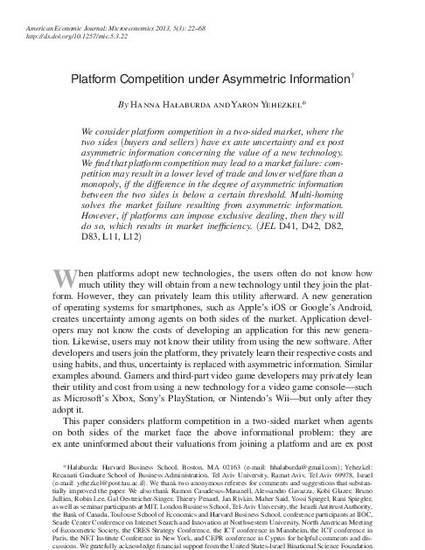
Article
Platform Competition under Asymmetric Information
American Economic Journal: Microeconomics
(2013)
Abstract
In the context of platform competition in a two-sided market, we study how ex-ante uncertainty and ex-post asymmetric information concerning the value of a new technology affects the strategies of the platforms and the market outcome. We find that the incumbent dominates the market by setting the welfare-maximizing level of trade when the difference in the degree of asymmetric information between buyers and sellers is significant. However, if this difference is below a certain threshold, then even the incumbent platform will distort the trade downward. Since a monopoly incumbent would set the welfare-maximizing level of trade, this result indicates that platform competition may lead to a market failure: Competition results in a lower level of trade and lower welfare than a monopoly. We also consider multi-homing. We find that multi-homing solves the market failure resulting from asymmetric information. However, if platforms can impose exclusive dealing, then they will do so, which results in market inefficiency.
Keywords
- asymmetric information,
- platform competition,
- exclusive dealing
Publication Date
2013
Citation Information
Hanna Halaburda and Yaron Yehezkel, "Platform Competition under Asymmetric Information," American Economic Journal: Microeconomics 5, no. 3 (2013): 22-68
